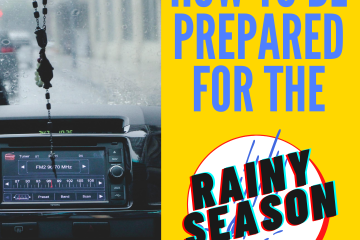
Life can be like a box of chocolates. But buying life insurance is more like ordering coffee at restaurent. There are so many possibilities that it is difficult to figure out what to buy. The confusion in how much and what type of life insurance to take is actually one of the main reasons why people do not have life insurance. However, the COVID-19 pandemic was a wake-up call for many Sri Lankans and, according to a survey, forced some to take out life insurance for the first time.
If you are planning to take out life insurance but are confused, these 10 tips will help you.
Tip No. 1: Assess your current financial situation
You need a good picture of your financial situation before you can understand the type of life insurance you want and how much. Think about what you set aside to support your loved ones based on your money. This will include emergency expenses, pension insurance and any life insurance from work. You may find that you are not prepared for the unexpected as you think.
Tip No. 2: Know the coverage you need
Just like people, they underestimate the amount of life insurance they want. They often only think about how much money is needed to pay off their debts, such as borrowing money. However, they should consider how much would be needed to help the husband or partner pay the bills, support the children, pay the school fees, or cover any other long-term needs. A rule of thumb is to have a death allowance of up to ten times your annual salary. But your own circumstances and financial goals may require more – or less – than money. A financial planner/wealth planner/insurance planner can help you get the right numbers
Tip No. 3: Know the difference between term life and permanent life insurance
Life insurance buyers often consider emergency life insurance rather than life insurance. Life insurance offers coverage for a certain period of time – usually 10, 15 or 20 years. In addition to life insurance, there are other types of permanent life insurance. Permanent life insurance offers life insurance, so it is more expensive than life insurance. It is also more expensive as it creates monetary value. This money can be used for anything – to cover emergencies, replenish your retirement income, pay for long-term care, and even cover insurance premiums. Whether you choose a date or a permanent policy depends on your needs and financial goals.
Tip No. 4: Understand what affects your life insurance rate
If you can’t get a single term life insurance right now, but you want permanent life insurance, most term life insurance offers the option to switch to permanent life insurance. Now you can fix your low maturity plan and change it forever if you increase your income.
Tip No. 5: Shop around for the best rate
Many insurance companies make it easy to get an online quote. As rates may vary, you should get offers from multiple companies to help you decide which company to apply for. You can also work with an independent insurer who works with many insurance companies and helps you get better protection at better prices.

Tip No. 6: Do not just focus on premium
If you are buying health insurance, the internal policy money can be just as useful as the one you pay for. If you are looking for public health insurance, pay close attention to reliable and unsecured parts that reflect the policy image. The rate at which you pay your health premiums is important to make sure they fit your budget. After all, policy is useless if you can’t do it. But the price shouldn’t be what you think it is.
Tip No. 7: Prepare to answer questions when applying
Expectations from your regular insurance company predict the quality of your insurance coverage. To get insurance, you need to fill out a lengthy application. Ask questions about your age, weight, personal and mental health, family history and smoking.The provider will also ask you about your driving history and if you have any serious work or needs that make it difficult for you to get insurance. This information will be used to determine your actual salary.
Tip No. 8: Be truthful on the application
Be careful not to omit or mislead any information on your life insurance application.
This is important because insurance companies can use all three sources to verify the information you provide, i.e. when you give them access to your information.
For example, insurance companies can obtain information about you by recording your medical history, prescription history, vehicle reports, and general records. You may need a medical exam, including blood and urine tests.
Tip No. 9: The process does not have to be painful
You do not have to punch or push during the application process. Many insurance companies have turned to life insurance without trial. Instead, they rely on third parties to recognize the information provided by candidates and data models to determine their risk.
Tip No. 10: Ask for temporary coverage
If the process of writing your policy takes weeks or longer, you can usually temporarily coverage the plan by sending a check with the first payment of the forthcoming insurance. It provides service and peace of mind while you wait for the applicaton to finish. Ask your insurance agent about this option.



0 Comments